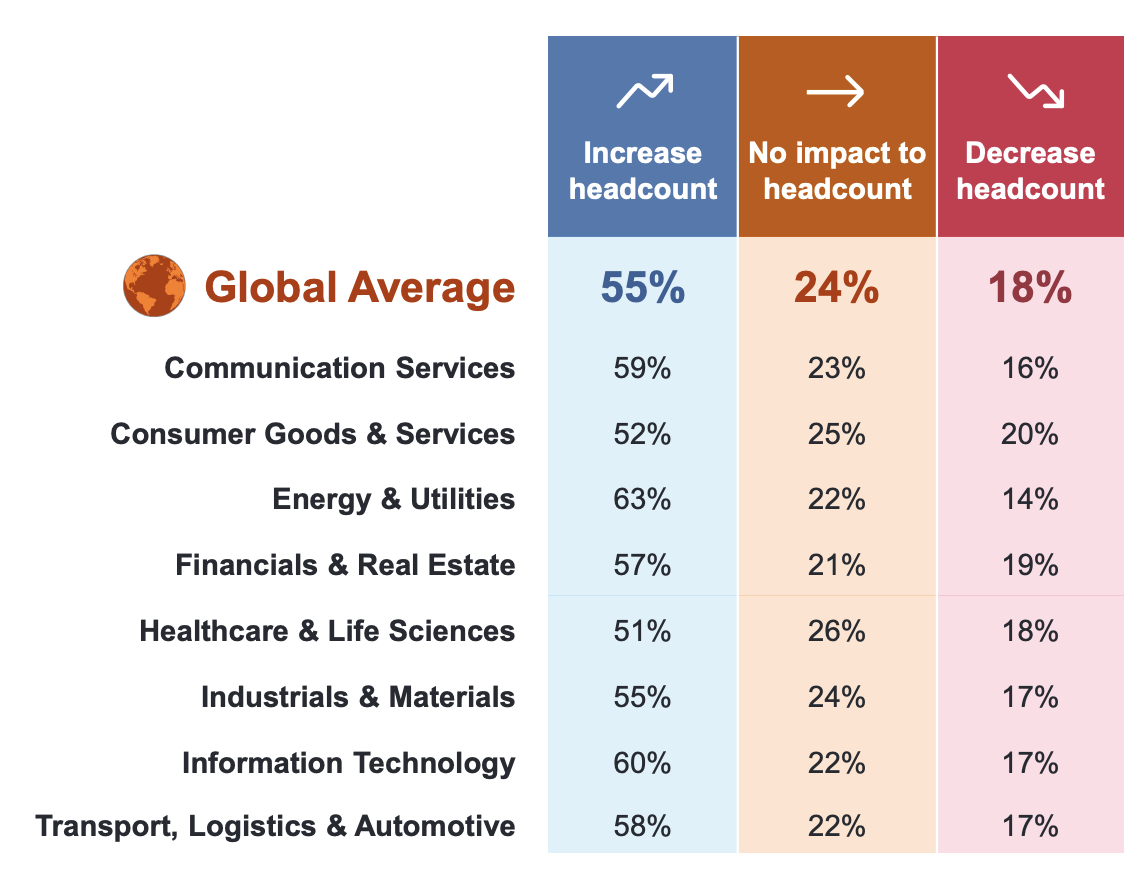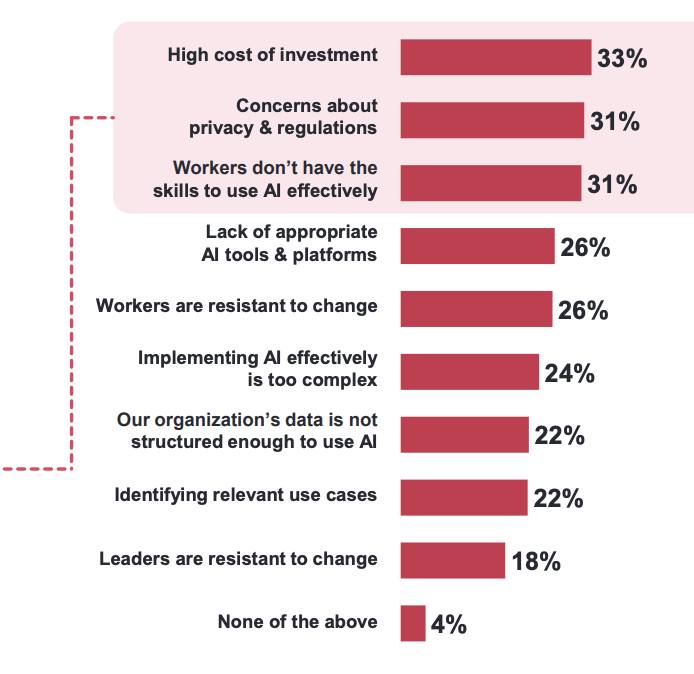
Employers urged to prioritise workforce upskilling to address skills gap

Contrary to fears of AI-driven job losses in the future, a new report has revealed that 55% of employers worldwide are planning to increase headcount over the next two years due to the rapidly developing technology.
ManpowerGroup's survey among 40,374 employers across 42 countries found that only 18% of the respondents believe that they will decrease headcount due to AI, while 24% don't think there will be any impact at all to their workforce numbers.
By industry, more than half of employers across all identified sectors in the report said they plan to increase headcount as a result of AI.
The energy and utilities services, as well as the information technology sectors are most likely to expand their workforce due to the technology, according to the report.
The findings come amid projections that AI will put 300 million full-time jobs at risk, triggering massive job insecurities in the workforce that is already concerned about recent layoffs.

Source: ManpowerGroup's Employment Outlook Survey
The findings also come as 48% of employers worldwide said they have already adopted AI, a 13% increase year-over-year, according to the report.
But among the top challenges in its adoption include the workforce, where 31% lack the skills to use AI effectively.

Source: ManpowerGroup's Employment Outlook Survey
The report also discovered that more than a quarter of employees are resistant to change due to AI, which comes amid a 12-point gap in terms of optimism between leadership and frontline employees.
According to the report, 69% of senior leadership is optimistic about AI, much higher than 57% of factory floor and frontline workers who are excited about the tech.
Optimism is also high for office workers, with 68%, as well as middle managers and supervisors, with 67%.
In the wake of these challenges, ManpowerGroup chairman and CEO Jonas Prising urged employers to prioritise upskilling.
"AI advances hold great promise to boost productivity, offer more meaningful work, and enhance human interactions," Prising said in a statement.
"To ensure this promise benefits the many, not the few, we must address skills gaps that currently exist and support people to develop in their careers and transition to new roles. Now is the time to prioritise upskilling, reskilling, and job redesign to build a brighter future of work."